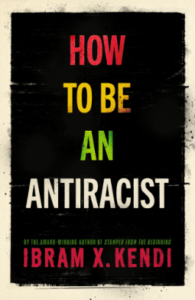 How to Be An Antiracist, Ibram X. Kendi
How to Be An Antiracist, Ibram X. Kendi
Received to review via Netgalley
I think a lot of people are picking this up expecting it to be a handbook, from the title — a list of actions you can take, a discussion of prejudice and the prejudiced things people can inadvertently do: something, in short, that tells you what to do. It isn’t that. How to be an Antiracist is a memoir, which charts the journey of Kendi himself through both racist and antiracist thoughts, through all the things that shape his response today. There are definitely things here that can point to what you need to do (primarily taught through example: one of the important things to do is reflect on how your thoughts and actions could contribute to or fight against racism), but it isn’t a recipe book.
Which is good: I don’t think any single book can tell us what needs to be done, because Black people are not a single organism with one mind. Kendi believes that racism against white people is possible, for instance, which I know a lot of Black people disagree with (using the definition that racism requires power). Kendi lays heavy stress on changing racist policy (a term he prefers to “institutional racism”) rather than confronting racist people or even racist actions. His theory is that social attitudes are informed by what policy dictates: he suggests that the changing of minds and hearts will come after a change in law, and changes to laws should not be held up to wait for the changes of attitude.
Kendi’s also looking mostly at the way racism operates in the US; my impression is that while there are commonalities, things play out differently in different countries because of the different histories and policies. If you’re going to read just one book on racism, I’m not convinced this is the right choice for everyone, even though the title makes it sound like a panacea.
It’s true too that it isn’t just a memoir: Kendi sets out each chapter carefully, beginning with a definition and then using examples (often from his own experiences) to illustrate the problem, how it affects people, and how he grapples with it and has grappled with it in the past. In some ways, you can treat it as a template — because you can go through it and substitute your own experiences or those of people you know, and understand the same issue from where you’re standing. But still, I’d say it’s primarily memoir, and that accounts for the fact that it can be a little repetitive (we see the same issues and themes examined in different parts of Kendi’s life) or unfocused.
For me, there were some snippets of history and culture that were new to me, partly because I’m not from the US; I think it’s also worthwhile on that level, though it isn’t a history book and doesn’t delve deeply into it.
Overall, my feeling is that it’s a worthwhile read, alone or as part of a little self-taught curriculum of books about racism and how it impacts people — and how to be better, taught through example.

Leave a Reply